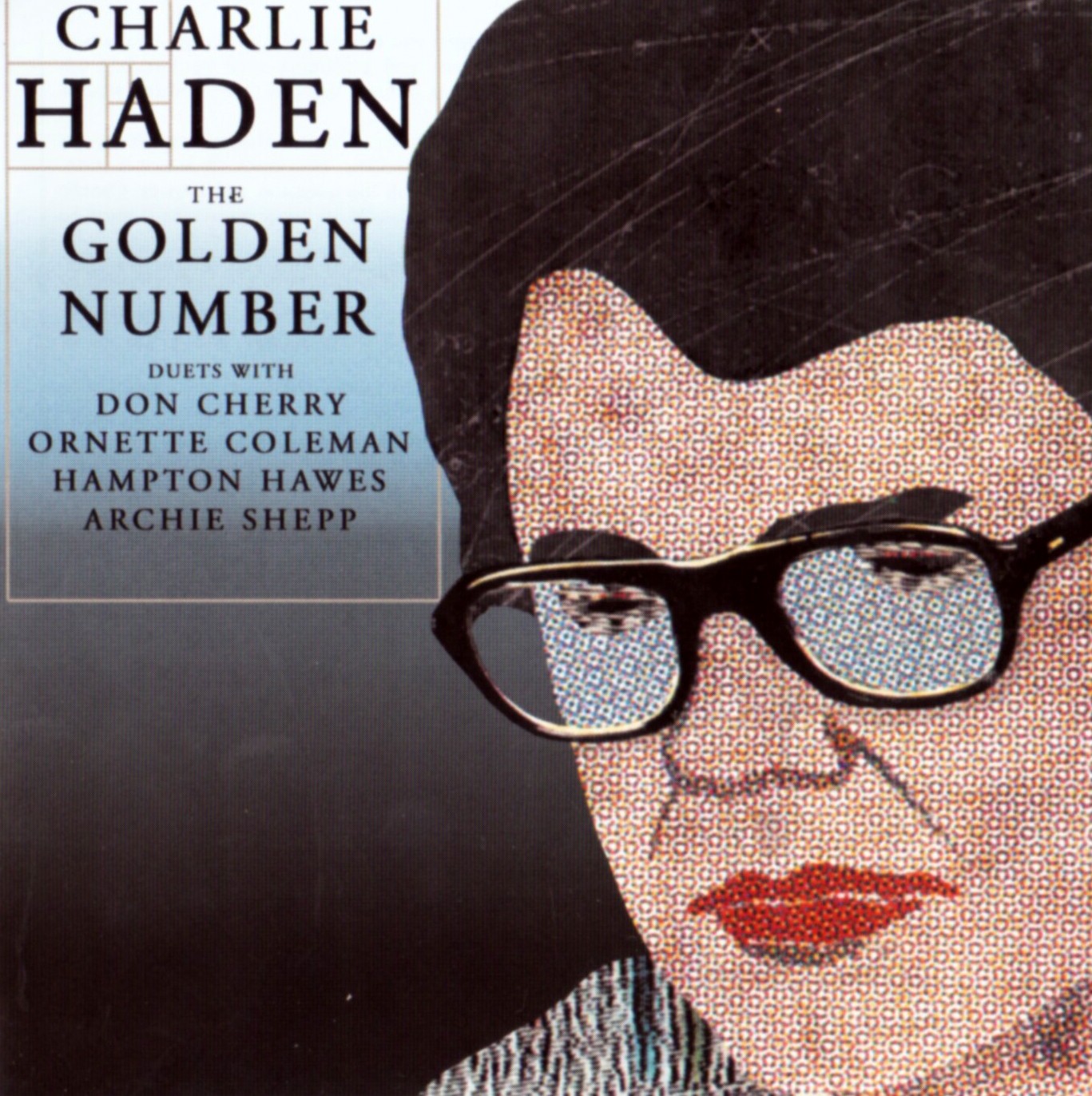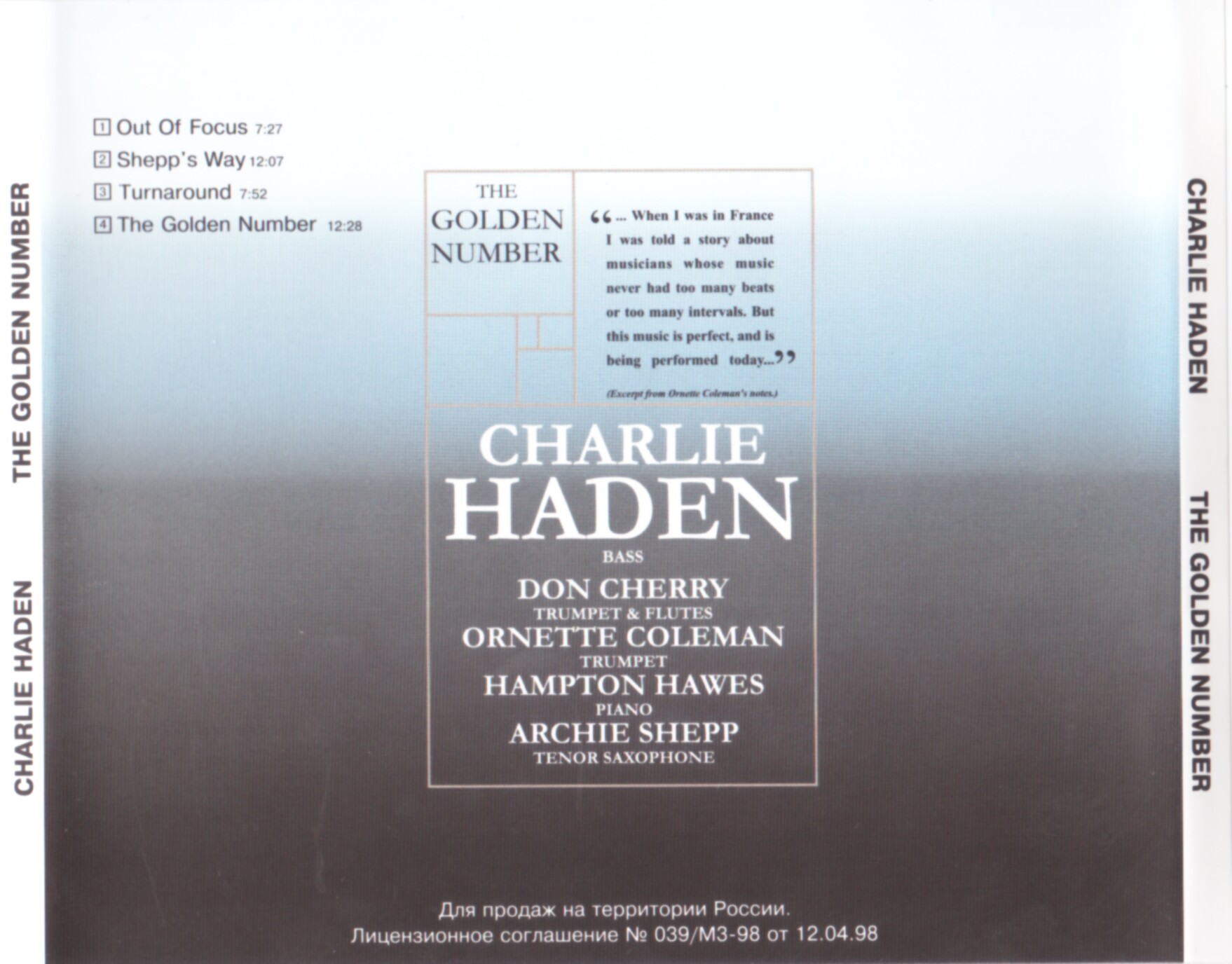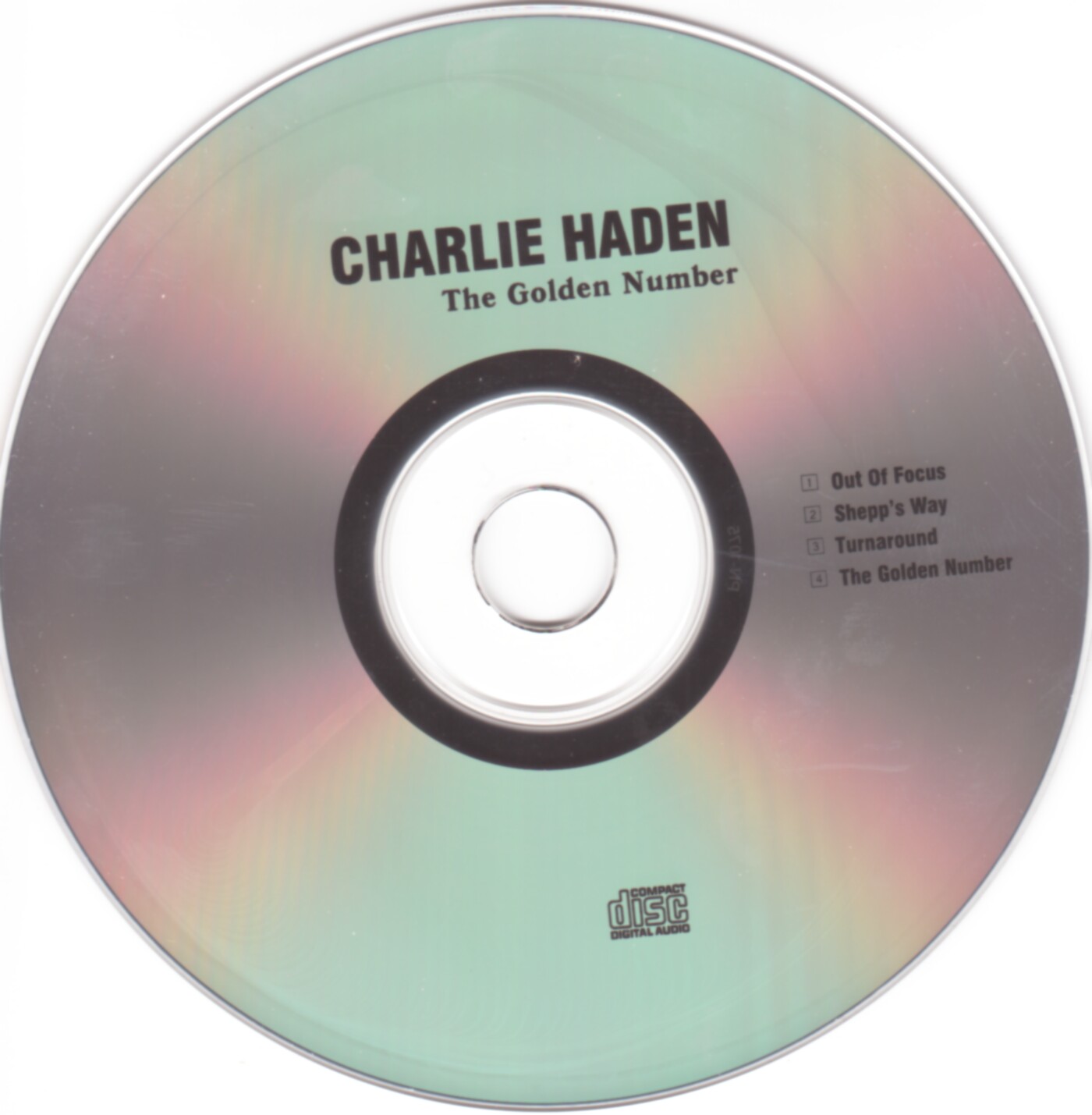


BOOKLET
Charlie Haden – The Golden Number
Recording Date Jun 7, 1976-Dec 20, 1976
Label A&M
Genre Jazz
Styles: Free Improvisation, Avant-Garde Jazz
AMG Rating ****
Tracks:
1. Out Of Focus (Charlie Haden) [7:27]
Charlie Haden – Basses
Don Cherry – Trumpet and Flutes
2. Shepp’s Way (Charlie Haden) [12:07]
Charlie Haden – Bass
Archie Shepp – Tenor Saxophone
3. Turnaround (Ornette Coleman) [7:52]
Charlie Haden – Bass
Hampton Hawes – Piano
4. The Golden Number (Charlie Haden) [12:28]
Charlie Haden – Bass
Ornette Coleman – Trumpet
Scott Yanow (AMG):
The second of two duet sets by bassist Charlie Haden (both have been reissued on A&M CDs) is the equal of the first. Haden teams up with Don Cherry (on trumpet and flutes), tenor saxophonist Archie Shepp (for the excellent “Shepp’s Way”), pianist Hampton Hawes (jamming Ornette Coleman’s blues “Turnaround”), and Ornette himself, who unfortunately plays trumpet this time around. In general, the music is quite intriguing and has its share of variety.
M. Allen Greenbaum (amazon.com):
Charlie Haden is the preeminent jazz bassist playing today. His virtuosity, his pioneering work in Free Jazz, and his uncompromising political stance (with the Liberation Music Orchestra) are appreciated internationally. Lately, he has reached a broader audience with his “Quartet West” recordings.
Haden performs four duets, one each with Free Jazz progenitors Ornette Coleman and Don Cherry, and one each with pianist Hampton Hawes and sax-player Archie Shepp. The duet with Cherry is surprisingly accessible; not really free jazz yet still fresh and experimental. The song, “Out of Focus” opens slowly, with Cherry’s chant-like flute over a sonorous bass riff. Cherry then breaks out into a swifter pace, but with the same sad/dreamy tone. His rapid-fire bursts of sound sometimes made melody out of rhythmic variations, and he has a wonderful Gillespie-like tone. Haden has a sometimes dry, sometimes full sound, and neither player overpowers the other.
On “Shepp’s Way,” Haden has a thicker (but never ponderous) sound and his chordings and bent notes are very effective. Shepp’s playing combines modernism and traces of bop. This is a thoughtful mostly non-melodic piece, and probably the most “abstract” one on the album, but it’s never too intense or oblique. Listeners who enjoy the beauty of sound and invention will enjoy it.
Hawes, to whom Haden dedicates the album, is delicious. He plays from a blues base on “Turnaround,” a melodic cut full of easy-going swing. It’s thoroughly enjoyable and, as with all cuts, recorded superbly. Haden and Hawes complement each other so well that it often sounds like more than two instruments are playing. (Earlier that year, Haden and Hawes collaborated on an entire album of duets, “As Long As There’s Music,” available from Amazon). The disappointment is Coleman’s duet. Similar in mood to “Out of Focus,” but Coleman lacks energy and interest, and the cut is way too long. This CD would have received 5* with a more compelling Coleman number.
Haden complements each player beautifully. He varies his sound effectively and with great empathy for the partner. He’s a different sort of bassist then say, Mingus, who has a greater attack, intensity, and big sound. However, Haden is excellent in his own way, and the playing by Hawes, Shepp, and Cherry is outstanding. Still, the listener should like bass playing and bass solos; there are several extended (but beautiful and interesting) solos by Haden.
